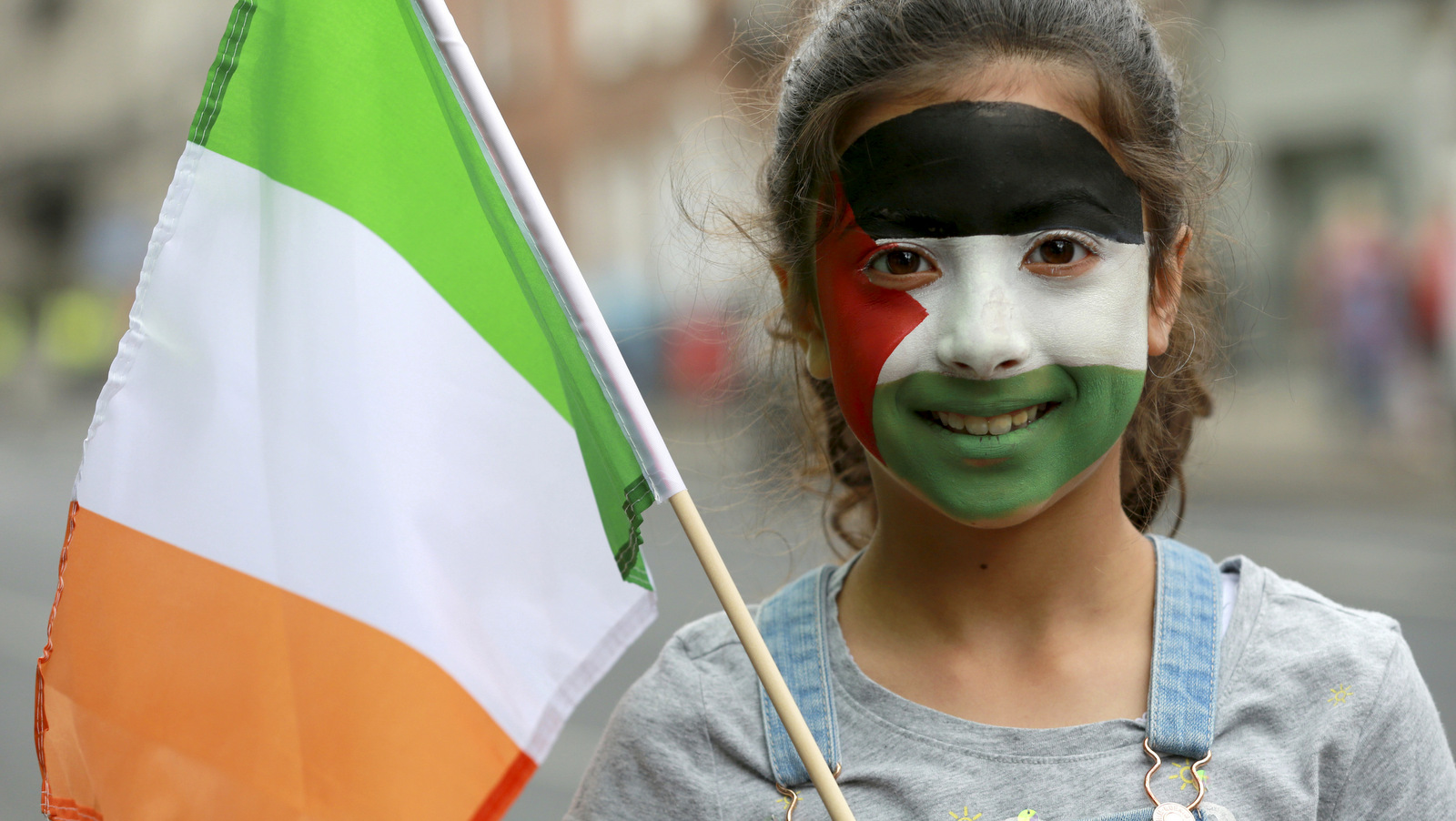DUBLIN – On Wednesday, the upper chamber of Ireland’s parliament – the Seanad – passed a landmark bill banning the purchase of goods and services originating in illegal Israeli settlements. Passed with 25 senators voting in favor and 20 against, the bill still needs to go the lower house of Ireland’s parliament, Dáil Éireann, for a debate and a vote and then pass through additional stages of review before being signed into law.
The bill’s recent passage by the Seanad as well as its backing by Irish parliament’s second-largest party, Fianna Fail, suggests that Ireland could soon be the first nation in the world to ban the importation of goods and services originating from illegal Jewish-only settlements in Palestine’s West Bank.
The fact that the bill was even brought to a vote suggests that the law is likely to withstand unprecedented pressure from the Israeli government and its supporters as it now moves to Dáil Éireann for consideration. Indeed, the bill – officially titled the “Control of Economic Activity (Occupied Territories) Bill 2018” – was originally introduced earlier this year on January 24th but, soon after, the Seanad voted to delay the debate on the measure after it was protested by the Israeli government.
Passed! Thank you for all the messages of support.. this is a first step, but an important one. Today we state strongly: Ireland will always stand for int humanitarian law, justice & human rights. Onwards.
pic.twitter.com/dO23n3T8ag
— Frances Black (@frances_black) July 11, 2018
At the end of January, less than a week after the bill was introduced, Israeli Prime Minister Benjamin Netanyahu summoned Ireland’s ambassador to Israel, Alison Kelly. Kelly seemed to acquiesce to Netanyahu, assuring him that the Irish government would not support the measure. Netanyahu and other Israel politicians had asserted that the bill would “harm the state of Israel” and was an endorsement of the Boycott, Divest and Sanctions (BDS) movement.
Despite the strong protest from Israel’s government and following several months of relative silence, independent Irish Senator Frances Black – who introduced the bill in the Seanad – announced on June 27th via Twitter that the bill was back on the legislature’s debate schedule.
On July 11th, my bill to ban illegal #SettlementGoods is in the Seanad. We’re close to a historic move for justice in #Palestine, but I need your help! Plz take 2m to ask your TDs & Senators to support the bill: https://t.co/p4DXCOH5tU @trocaire @ChristianAidIrl @irishcongress pic.twitter.com/2x3PuOZDBW
— Frances Black (@frances_black) June 27, 2018
Unsurprisingly, after the bill’s recent passage in the Seanad, Israeli lawmakers vowed a diplomatic response, though the details of that response have not been made public at this time. However, the Irish envoy to the country has been summoned to Israel’s Foreign Ministry for a meeting on Thursday regarding the bill’s advancement.
Israeli settlers have strongly attacked the bill’s passage. Shai Alaon, mayor of the illegal settlement Beit El, claimed “the European attempt to curtail settlement in Judea and Samaria will not succeed” and called the Irish senators who voted in favor of the measure “a group of anti-Semites.”
Palestinians welcomed the measure, with top Palestinian negotiator Saeb Erekat calling the bill’s passage in the Seanad a “courageous step” that challenges “Israel’s culture of impunity.”
If the measure is ultimately signed into law, the ban would send a dramatic message to Israel given that Ireland currently imports a wide variety of products from illegal West Bank settlements, including fruit, vegetables, wine, plastics, and cosmetics. Thanks to EU labeling regulations that went into effect in 2015, these products are clearly marked as originating in illegal settlements and can longer be misleadingly marketed as products “made in Israel.” Though such labeling allows consumers to make informed choices while shopping, the ban would remove those goods from stores in Ireland entirely.
Though supporters of Israel and Israeli politicians have slammed the ban as “radical”, “anti-semitic” and “extreme,” such arguments do little to change the reality of the illegal nature of settlements, which are not only internationally considered illegal but are also considered war crimes under the Rome Statute of the International Criminal Court as well as International Humanitarian Law. Those measures explicitly prohibit occupying powers from placing their own civilian population into occupied territories with the intent of annexing that territory.
Thus, instead of being “radical” legislation, this bill would enforce compliance with both Irish and international law.
Top Photo | Mona Abdul Magid (9), holds an Irish flag outside Leinster House on July 11, 2018, in Dublin. Palestinian farmers handed over a symbolic olive tree to show support for the Occupied Territories Bil. Crispin Rodwell | AP
Whitney Webb is a staff writer for MintPress News and a contributor to Ben Swann’s Truth in Media. Her work has appeared on Global Research, the Ron Paul Institute and 21st Century Wire, among others. She has also made radio and TV appearances on RT and Sputnik. She currently lives with her family in southern Chile.
The post Ireland Passes Bill Banning Goods From Israeli Settlements in Occupied Palestine appeared first on MintPress News.
